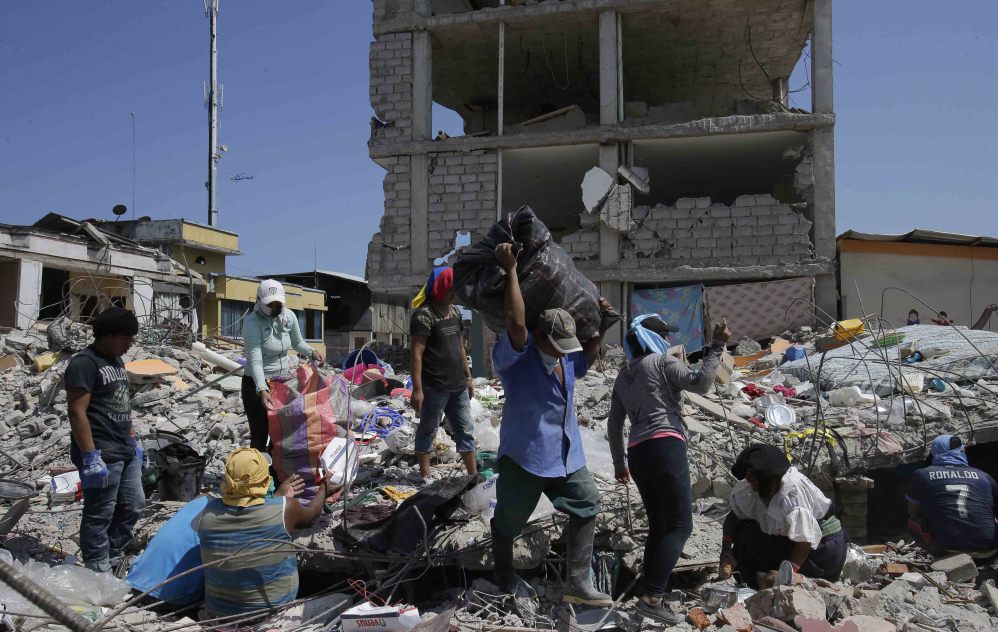The government begins reconstruction efforts as death toll from the recent earthquake reaches 443.
QUAYAQUIL, Ecuador — As rescue teams continued to work against the clock to pull survivors from the ruins left by last weekend’s catastrophic earthquake, the government began to organize a relief and reconstruction effort for leveled cities on the Ecuadorean coast that President Rafael Correa said would cost $3 billion and take years.
Rescue teams working with sniffer dogs continued to extract victims trapped in rubble in the hardest-hit cities, including Manta, Pedernales and Portoviejo. The official death toll rose to 443 as of Tuesday morning, with 434 of the dead in Manabi province, which includes all three cities.
The aid agency Save the Children estimated that 200 people were still missing.
“These have been some of the most difficult days of my life,” Correa said Tuesday after touring the stricken cities of Manta and Chone. “The tragedy is huge but so is the courage of the Ecuadorean people.”
Ecuadoreans continued to be on edge as 364 aftershocks from Saturday’s quake had been registered as of Tuesday morning. The odor of death began to permeate the air in cities such as Pedernales, underscoring the fact that many bodies still lie beneath the toppled buildings.
Health officials warned of the risks related to decomposing bodies. Those risks were a factor in increasing activity by huge earth-moving vehicles, which began removing rubble and clearing streets in Manta and Pedernales despite the risks to any survivors still pinned by fallen concrete.
The government on Tuesday also issued an international appeal for help. Among the items most needed, it said, were bottled water and flashlights, reflecting the fact that much of the stricken area is still without potable water and electricity three days after the magnitude 7.8 quake.
The government has ordered all of Ecuador’s beverage bottlers to temporarily turn over their operations to officials for the production of bottled water. In apparent response to looting and other security challenges, the government also said it was assigning 42,000 members of the armed services to the quake area.
Delivery of aid remains complicated by the closure of several regional roads. A total of 647 international rescuers so far have arrived from Cuba, Colombia, Venezuela and other countries, the government said.
Copy the Story LinkSend questions/comments to the editors.



Success. Please wait for the page to reload. If the page does not reload within 5 seconds, please refresh the page.
Enter your email and password to access comments.
Hi, to comment on stories you must . This profile is in addition to your subscription and website login.
Already have a commenting profile? .
Invalid username/password.
Please check your email to confirm and complete your registration.
Only subscribers are eligible to post comments. Please subscribe or login first for digital access. Here’s why.
Use the form below to reset your password. When you've submitted your account email, we will send an email with a reset code.